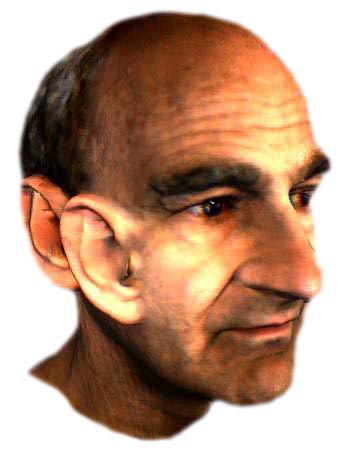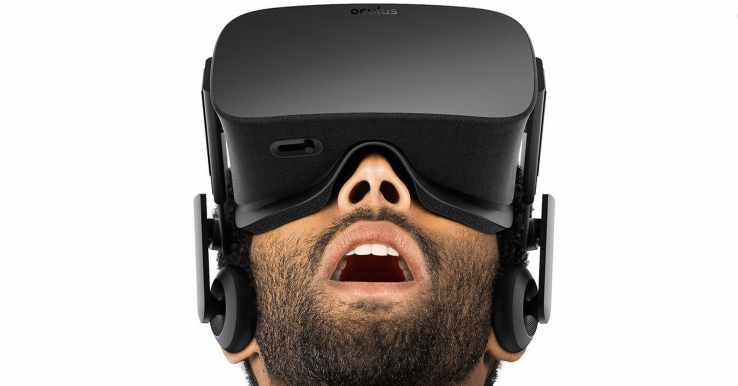Thinking With Media Technologies
 Sunday, March 20, 2016 at 9:25AM
Sunday, March 20, 2016 at 9:25AM
GARY HALL: As I say, variations on the narrative that sees us moving from an era of written and printed communication into a ‘universe of technical images’, as Flusser calls it, have been provided by a number of theorists and philosophers. But if this is the case, rather than concentrating on writing even more commercially copyrighted, linearly organised, bound and printed codex books about it, might it not be more appropriate for us to try to understand this post-Gutenberg universe by acting as though we are indeed living through a long process of transition from one era to another, whatever form the latter may eventually turn out to take?

It’s from the performance artist Stelarc, perhaps more than anyone else, that I’ve learned the importance of engaging with media technologies as things we think with and not just through or about. In his talks and lectures Stelarc takes great care to emphasise that he doesn’t feel he can explore how different developments in technology are altering our understanding of the body and the human unless he is able to achieve his often extremely difficult to realise performances with robotics, medical procedures, cybernetic systems and the internet; unless he actually has, for example, an extra ear surgically constructed, positioned as an additional bodily feature, and able to ‘broadcast RealAudio sounds to augment the local sounds that the actual ears hear', and perhaps to ‘whisper sweet nothings’ to them.
At the same time, Stelarc is aware that in doing so, he is merely offering his own – albeit rather unique, some would say physically quite extreme – contribution to that long tradition of artists, writers and philosophers who have stressed the importance of understanding our relationship to media and other technologies performatively. It is a tradition that includes Friedrich Nietzsche, who claimed that ‘our writing tools are also working on our thoughts’; Ludwig Wittgenstein, who commented that ‘I really do think with my pen, because my head often knows nothing about what my hand is writing’; and also William Blake, who in his poem Jerusalem observed that ‘If Perceptive organs vary, Objects of Perception seem to vary’.
So what are the implications for us, as media, cultural and communication studies students and scholars, of the theory that is being rehearsed here: that our performances with media technologies exist in an enmeshed, processual, intra-active relationship with our thoughts and bodies? Well, for one thing, it means our thoughts do not pre-exist this relationship. Once again we can see that they are created at least in part by the ‘tools’ we use to express them, as well as by the performance of doing so, including that part of the performance that involves the physical human body. But what it also means is that if these tools and performances change – if as a culture we switch from writing predominantly with a pen to communicating increasingly with a typewriter, networked computer keyboard, Bluetooth-enabled tablet touchscreen, or Oculus Rift Virtual Reality Headset – then so do our thoughts.

What it certainly does not mean is that we all now have to sign up to Facebook, Twitter and Google Scholar so we can try to understand our post-Gutenberg world by learning to think with these corporate media environments (and not just about them). It doesn’t mean we have to go along passively with the transition from the printed codex book to networked digital information and data flows. But neither does it mean we should be acting today as if we can somehow replicate the conditions of the Gutenberg galaxy – especially its quiet, private spaces where an individual could concentrate on reading and writing books without having their thoughts disturbed by a constant stream of communications from the outside world. (I’m thinking of Jonathan Franzen permanentley sealing up the Ethernet port on his laptop that enables him to connect to the internet so he can write his great American novels, or Nicholas Carr moving to the mountains in Colorado where there is no cell phone service to produce his books about how the internet is damaging our brains.) Indeed, one of the main points I want to make is that, when it comes to our ways of being and doing in the world, these two culture industry-dominated systems for the creation, publication and dissemination of knowledge and information – what we might crudely characterise as the classic ‘closed’ system of print culture and the newer ‘semi-closed’ system of corporate social and mobile media – are not so very different in this respect. Instead, I’m motivated more by the idea of taking some of the tendencies associated with this transition and giving them new inflections that are different to both the neoliberal and the liberal ‘“way of doing things”’.
 Gary Hall | Comments Off |
Gary Hall | Comments Off | 





